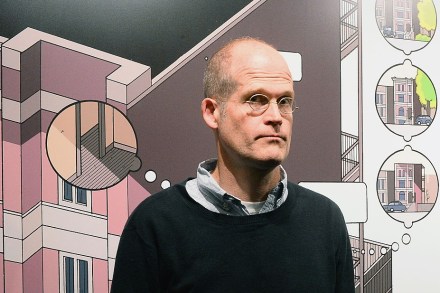‘People can’t take a joke these days’: Michael Heath on wokeness, The Spectator and turning 90
When I joined The Spectator, the office was in Bloomsbury, in a four-storey Georgian house, and the further down the building you went, the more stylish, the more Spectator (I thought), everything became. On the top floor, blinds drawn, sitting in the half-dark, was Kimberly Fortier, the American publisher, often in long meetings with media alpha males. She was married to the publisher Stephen Quinn and having an affair with the home secretary, David Blunkett, but was always looking to widen her portfolio. One floor down was Boris Johnson, then editor, mostly immersed in meetings of his own with assistant editor Petronella Wyatt. We’d sometimes find him on the landing,





